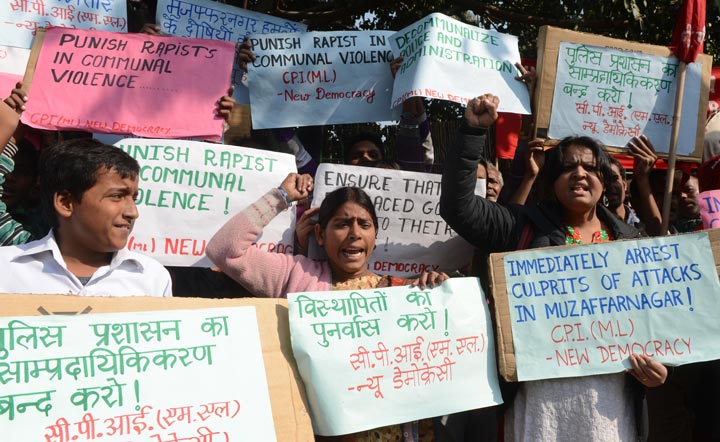NEW DELHI – An Indian court convicted five men Thursday for raping a photojournalist and a call-centre operator last summer inside an abandoned textile mill in the financial hub of Mumbai, cases that renewed calls to wipe out the scourge of sexual violence in India.

The rapes happened about a month apart in the same abandoned mill in the Lower Parel section of Mumbai, where luxury malls and condominiums stand alongside sprawling slums. Three of the men were convicted in both cases.
“(I) hope this verdict will act as a deterrent,” said Maharashtra Home Minister R. R. Patil, saying the cases were tried in the “fastest possible time.”
The men face 20 years to life in prison, prosecutor Ujjwal Nikam said. Sentencing was expected on Friday. Two minors are being tried separately by a juvenile court.

Get breaking National news
READ MORE: Analysis: Mumbai gang rape case highlights lingering gender issues in progressive Indian city
In the first case, a call-centre operator was gang-raped on July 31 inside the abandoned textile mill.
Nearly a month later, a 22-year-old photojournalist was on assignment with a male colleague when several men approached and offered to help them get permission to shoot photos in the abandoned mill. Once inside, the male colleague was beaten and tied up while the attackers took turns raping the woman.
The photojournalist stunned the nation after her attack by telling local media that “rape is not the end of life” – a groundbreaking statement given that many rape victims are often shunned by their families, fired from jobs or driven from their home villages.
- 2nd stowaway in a month caught on Delta Air Lines flight without a ticket
- 6,000 inmates escaped from a high-security prison in Mozambique. What to know
- Azerbaijan plane was hit from outside, possibly by weapon, minister says
- India alleges international students being trafficked through Canada to U.S.
The women cannot be identified under Indian law.
The men convicted of the crimes range in age from 19 to 26, according to the Press Trust of India news agency. In the weeks after the attack on the photojournalist, Mumbai police said the suspects had little to no education and lived in the slums near the abandoned mill.
Both trials were held by a fast-track court in a country where the judiciary is notorious for delays. But rape cases have taken on a sense of urgency since December 2012, when a 23-year-old medical student was fatally gang-raped on a moving bus in New Delhi.
Rape, rarely talked about in India’s deeply conservative society, became front-page news, with demands that police do more to protect women. Pledging to crack down, the federal government created fast-track courts for rape cases, doubled prison terms for rape, and criminalized voyeurism and stalking.
Four men have been sentenced to death in the New Delhi gang rape case.







Comments